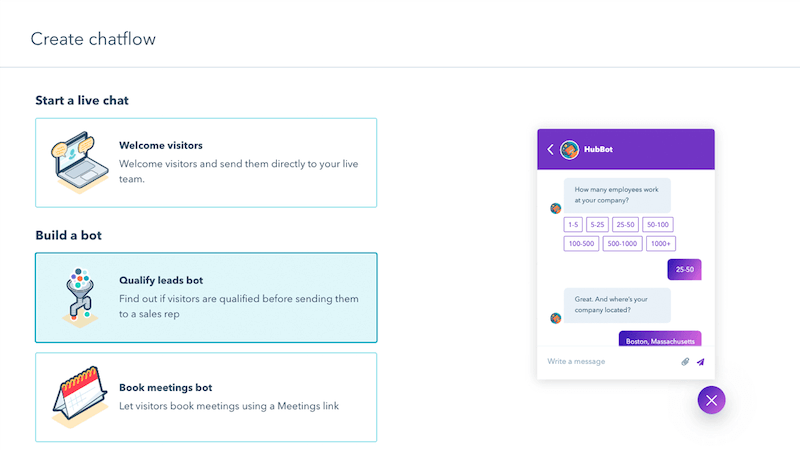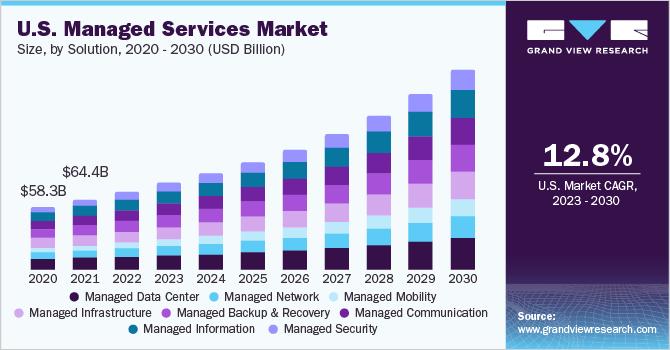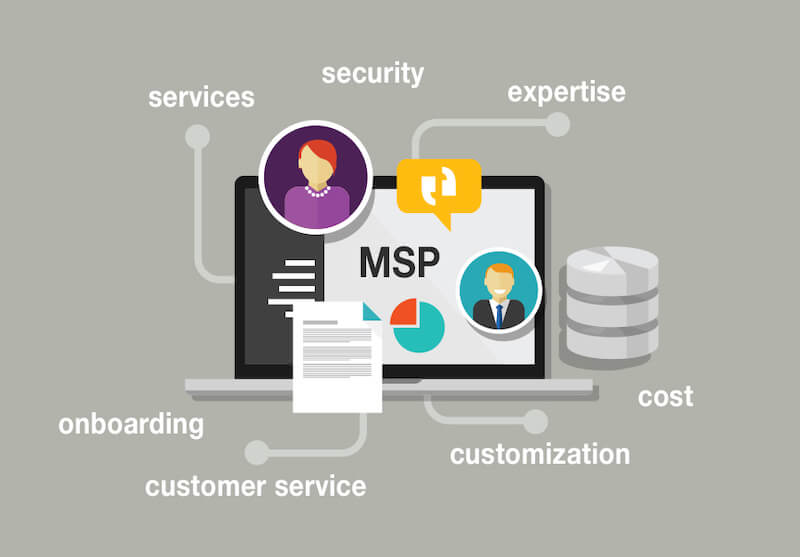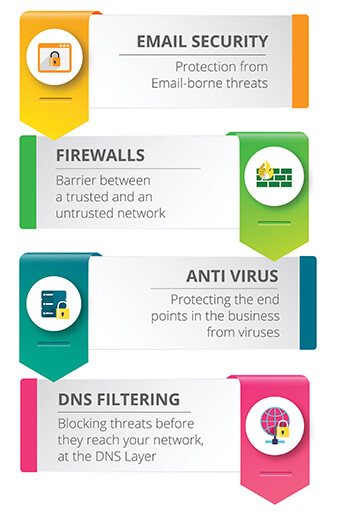5 MSP Trends That are Shaping the Industry in 2024 and Beyond
In an industry as dynamic as MSPs (Managed Service Providers), understanding the key trends shaping its future is not just beneficial—it's crucial for survival and success.
This comprehensive exploration delves into the five most influential trends driving the MSP industry in 2024 and beyond.
Whether you're an MSP professional or a client, these insights are indispensable, ensuring you stay ahead of the curve in this rapidly changing field.
Once you know about these trends, you'll be well-equipped for the year ahead and many years after that.
Importance of Staying Updated with MSP Trends
Innovative technologies emerge, market demands evolve, and client expectations transform. Keeping abreast of changes ensures that your services remain relevant, competitive, and, most importantly, valuable to your clients.
Below, we'll dive into five pivotal trends reshaping the MSP industry. Here's a sneak peek:
- Innovative Technologies: Discover how cutting-edge technologies like artificial intelligence (AI), cloud computing, and the Internet of Things (IoT) revolutionize managed services.
- Adapting to Market Demands: Learn how MSPs are tailoring their services to meet the unique needs of a diverse client base.
- Cybersecurity as a Priority: With cyber threats rising, see how MSPs integrate robust security measures into their offerings.
- Market Expansion and Consolidation: Understand the implications of market growth and how mergers and acquisitions shape the MSP landscape.
- Future Directions: Get insights into the future for MSPs, from emerging challenges to innovative solutions.
Trend 1: The Immediate Impact of AI on the MSP Sector
Innovative Technologies Revolutionizing Managed Services
The MSP sector is currently witnessing a technological renaissance, primarily driven by the integration of AI, IoT, and Cloud Computing.
These technologies aren't just add-ons; they fundamentally reshape how MSPs operate and deliver services.
AI
AI is transforming MSP operations through automation and enhanced decision-making.
For instance, chatbots powered by conversational AI are being adopted for improving customer support and lead generation. AI tools can also automate repetitive activities, assist in searches and in outbound sales, and create omnichannel customer experiences.
NinjaOne has written about using chatbots on their site, discussing how MSPs can learn from their insights and highlighting the tools available. These include HubSpot, who's own chatflow creation is shown below.

IoT
MSPs could, and perhaps should, find their niche throughout the many facets of the IoT - from planning, obtaining hardware and software, building architectures, and managing networks.
As long-term partners in business, MSPs can remain crucial partners for major enterprises by finding their place in the IoT landscape and delivering exceptional service.
Looking forward and getting ahead of the curve will be critical to this, as well as assessing your current service offering and ensuring it matches the needs of the wider market.
Cloud Computing
Information Security Services International has written about building a solid strategy for cloud computing offerings as an MSP and the importance of building a cloud center of excellence (CCoE).
Their MSP case study outlines the need to define your target market, primary goal, capabilities, and what 'great' would look like to your potential customers.
With cloud services now ubiquitous in business and our daily lives, finding a differentiation within the market is crucial in unlocking a potentially massive customer base.
Case Studies: How Top MSPs are Leveraging AI
- Meghan Landry, the Cajun chatbot: General Informatics, a US-based MSP, has created a chatbot with an entire personality, currently only used internally, but showing massive potential when it comes to their implementation in customer-facing interactions.
- Impact Networking's Cloud Computing Transition: Impact Networking's adoption of Nerdio's cloud services underscores the transformative power of cloud computing in the MSP industry. Their migration to Azure facilitated more efficient management of client environments, highlighting the benefits of cloud computing in scaling operations and improving service delivery.
Incorporating these technologies into MSP operations signifies a shift towards more efficient, scalable, and customer-centric service models.
As MSPs continue to adopt and integrate these technologies, we expect to see further innovations and enhancements in their services.
2. MSPs Adapting to Market Demands
Changing Client Expectations
As the MSP economy burgeons, projected to surpass $500 billion by 2028, businesses increasingly rely on MSPs to manage complex IT systems and address cybersecurity concerns.

This growth, however, brings its challenges.
The era of simply offering break-fix solutions has evolved; clients now demand detailed strategies, high service levels, and specific problem-solving tool stacks from their MSPs.
This shift requires MSPs to develop comprehensive strategies that meet and predict client needs.
MSPs and Customized Service Offerings
The shift in work models, with a growing trend towards permanent hybrid work environments, has steered businesses, including SMBs, towards cloud solutions. Concerns around cloud security, business continuity, and data management are paramount.

Responding to these needs, top-performing MSPs increasingly focus on security audits, cyber security threats, and multi-factor authentication for enhanced endpoint security.
This adaptation isn't just about technology; it's about understanding and meeting the evolving expectations of a technology-driven market. MSPs are tasked with staying informed and proactive, supplying real solutions that address the growing and diverse needs of their client base.
In essence, MSPs are no longer just service providers but are evolving into strategic partners, integral to the success and security of their clients' operations.
This change in thinking emphasizes the need for MSPs to be agile, informed, and ahead of the curve in understanding and responding to market demands.
3. The Rising Importance of Cybersecurity in Managed Services
As technology evolves rapidly, so do the associated cyber threats and risks.
In 2023, cybersecurity has become an essential part of business operations across all sizes, placing MSPs at the forefront of identifying and addressing these emerging cybersecurity trends. MSPs are increasingly playing the role of trusted advisors in cybersecurity, navigating new threats and innovations daily.

Key trends impacting cybersecurity in the MSP sector include:
- Continued Prevalence of Ransomware Attacks: These attacks, which involve encrypting a company's data and demanding a ransom for the decryption key, are expected to persist. MSPs must proactively implement robust cybersecurity protocols like multi-factor authentication and data backup and recovery solutions.
- Vulnerabilities in IoT Devices: The growing use of IoT devices, such as smart thermostats and security cameras, introduces new cybersecurity risks. MSPs must ensure these devices are properly secured and updated to prevent exploitation.
- Stricter Cybersecurity Regulations: Governments worldwide are imposing more stringent regulations to protect businesses and individuals from cyber risks. MSPs must ensure that clients follow these regulations to avoid fines and reputational damage.
- Integration of AI in Cybersecurity: AI is increasingly used for real-time threat detection and response, but MSPs must also ensure the security of the AI algorithms used.
- Adoption of Zero-Trust Architecture: This security model requires strict identity verification for network or system access, assuming "zero trust" before proven otherwise. It's gaining popularity as businesses look to protect their networks from internal and external threats.
Case Studies: MSPs Excelling in Cybersecurity
- Nostra: As a leading MSP founded in 2006, Nostra serves clients in Ireland and internationally. The company has expanded its security offerings to address the growing cybersecurity needs of its diverse client base.
- Strategic Technology Solutions (STS): Specializing in the legal vertical, STS, founded in 2015 and based in Southern California, offers managed services, IT solutions, cloud services, and cybersecurity solutions. STS successfully marketed its cybersecurity services, displaying its ability to adapt to industry demands.
- Shinka IT: This case study shows how Shinka IT expanded its security services and shortened time-to-market by leveraging inSOC's SOC as a Service (SOCaaS) solution, generating more business from prospects and existing clients.
These case studies reflect how MSPs are not just reacting to cybersecurity challenges but are proactively integrating advanced security measures into their offerings, thus playing a crucial role in safeguarding businesses in an increasingly digital world.
4. MSP Market Expansion and Consolidation
Market Growth and Its Impacts on MSPs
The MSP market has been experiencing significant expansion, with a clear trend towards consolidation.
Last year, the industry saw a notable increase in consolidation, with more prominent MSP players acquiring smaller rivals to boost growth. This trend of consolidation was expected to continue through 2023.
The driving factors include a skills shortage in the industry, prompting MSPs to embrace mergers and acquisitions (M&A) to acquire needed talent and advance their businesses.
Another consolidation trend is specialization; MSPs are focusing their services in specific areas or industries where they can offer best-in-class services, moving away from being generalists.
Mergers and Acquisitions: Shaping the Future of MSPs
M&A activity in the MSP space has been robust in 2023, with a noticeable shift in the size of the deals.
More significant private equity firms are bringing more cash to the table, but a small number of MSPs are available for acquisition. Recent examples include the rollup of 15 managed service providers into a single company, MSP Corp, to supply IT-managed services across Canada and the consolidation of four MSPs into Procurement IT.
The scale of investments has also grown, with average private equity investments doubling from 2020 to 2023. The larger funds seek significant platform investments but lack assets of the desired size.
The interest from larger private equity groups in MSPs has increased notably since 2020. Earlier investments by smaller private equity groups have shown significant returns, drawing the attention of larger firms with more substantial funds.
These larger groups prefer to buy MSPs directly from the founder CEOs before they receive their first institutional money, although such opportunities are rare.
In summary, the MSP market is undergoing a phase of rapid expansion coupled with significant consolidation. More prominent players are acquiring smaller MSPs, and the industry is trending towards specialization.
The M&A activity, driven by private equity investments, is reshaping the MSP landscape, with implications for current and future market dynamics.
5. The Future of MSPs: Predictions and Directions
Predicting the Next Big Moves in the MSP Industry
The MSP industry is poised for significant changes and advancements. Here are some key predictions and expert opinions on the future direction of MSPs:
- Remote work increasing the importance of MSPs: The shift towards remote and hybrid work models has heightened the need for MSPs. Businesses increasingly rely on MSPs for efficient remote management and monitoring (RMM) software to ensure smooth operations and secure networks. This trend also brings a greater focus on cybersecurity, as remote work exposes new vulnerabilities, highlighting the importance of insider risk management.
- AI: AI is no longer a buzzword but a crucial part of MSP success. MSPs are using AI to enhance client support and experience and internally using AI for real-time risk mitigation, malware detection, and troubleshooting. They'll also look to fully support the AI requirements of their customers through rigorous testing and a better understanding of the tools in the market.
- Adapting to Economic Challenges: The ongoing economic challenges, including recessions, are pushing businesses, especially SMBs, to optimize IT spending. MSPs are well-positioned to supply cost-effective, tailored business continuity, disaster recovery, and backup solutions. They help businesses access advanced technology and security measures at a fixed rate, reducing the burden of tech talent retention and tool costs.
Innovating for Tomorrow: What Lies Ahead for MSPs
Market Consolidation: The MSP market is experiencing a trend of mergers and acquisitions to support profitability and competitiveness. This consolidation allows MSPs to offer comprehensive service packages and gain a competitive edge. Strategic partnerships and investments are vital in enhancing service efficiency and specialization.
Ransomware as a Persistent Threat: Ransomware attacks will continue posing significant risks, particularly to SMBs. MSPs must invest in and develop strategies to combat these attacks effectively. This entails offering robust cybersecurity solutions to help businesses, especially those with limited tech budgets, safeguard against these threats.
In conclusion, the future of MSPs lies in adapting to the evolving business landscape, using AI and other emerging technologies, tackling cybersecurity challenges, and navigating economic shifts. MSPs that embrace these changes and innovate will be well-equipped to thrive in the coming years.
Key Takeaways about MSP Trends
As we've explored the pivotal trends shaping the MSP industry in 2024 and beyond, several key points emerge:
- Technological Innovations: Integrating AI, IoT, and cloud computing is revolutionizing MSP services, offering enhanced efficiency and new capabilities.
- Adapting to Market Demands: MSPs must evolve to meet changing client expectations, particularly in cybersecurity and cloud solutions.
- Cybersecurity Focus: The increasing importance of cybersecurity in MSP offerings cannot be overstated, with MSPs playing a crucial role in protecting against emerging threats.
- Market Expansion and Consolidation: The MSP market is experiencing significant growth and consolidation, with mergers and acquisitions shaping the industry's future.
- Future Predictions and Innovations: The rise of remote work, AI's expanding role, economic challenges, market consolidation, and persistent cyber threats like ransomware are vital areas where MSPs must focus.
These trends are not just fleeting observations; they represent the roadmap for MSPs to stay relevant, competitive, and effective.
As an MSP professional or a client using their services, understanding and adapting to these trends is essential for future success.
With this knowledge, you can confidently navigate the evolving landscape of managed services, ensuring resilience and growth in an ever-changing digital world.
Share this
You May Also Like
These Related Stories

Top Provider Discusses MSP Market Trends and Current Customer Needs

Microsoft’s CSP Shake-up: How Top MSPs Can Turn Requirements into Competitive Advantage


